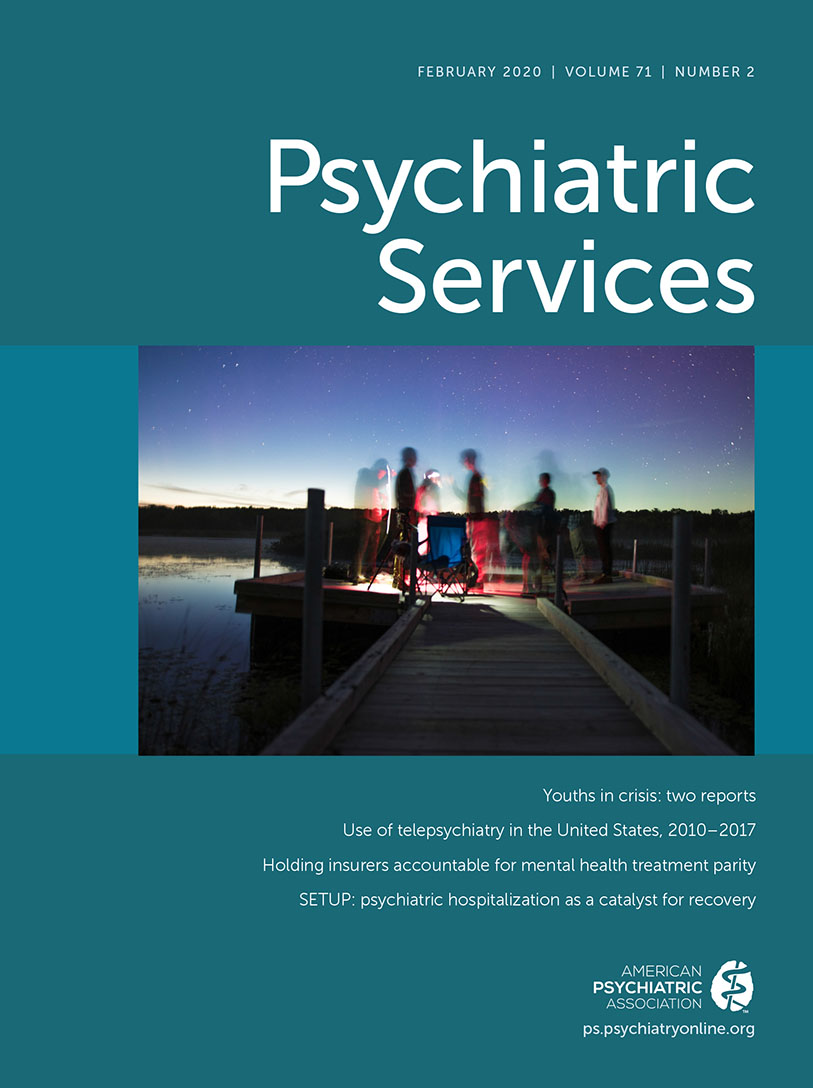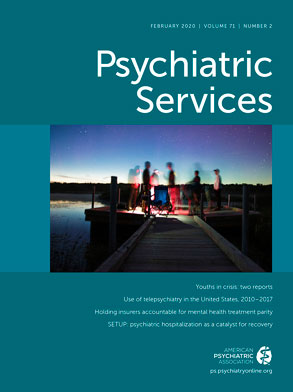Stress, Coping, and Context: Examining Substance Use Among LGBTQ Young Adults With Probable Substance Use Disorders
Abstract
Objective:
Methods:
Results:
Conclusions:
HIGHLIGHTS
Methods
Results
| Characteristic | N | %a |
|---|---|---|
| Gender identity | ||
| Cisgender male | 23 | 39 |
| Cisgender female | 29 | 49 |
| Transgender or other gender minority | 7 | 12 |
| Sexual orientation | ||
| Lesbian or gay | 34 | 58 |
| Bisexual | 21 | 36 |
| Queer | 4 | 7 |
| Age | ||
| 21–28 | 28 | 48 |
| 29–34 | 31 | 53 |
| Race-ethnicity | ||
| White, non-Hispanic | 46 | 78 |
| Other | 7 | 12 |
| Missing | 6 | 10 |
| Received treatment for a substance use disorder | ||
| Yes | 35 | 59 |
| No | 24 | 41 |
Minority- and LGBTQ-Related Stressors and Coping
Proximal stressors: identity formation and disclosure and substance use in adolescence.
| Theme and excerpt | Participant | Narrative |
|---|---|---|
| LGBTQ-related stressors and coping | ||
| Proximal stressorsa | ||
| 1 | Cisgender man, gay, age 32 | [When I was younger] I was dating a guy and was lying to everyone. It was so much work and was hard to lie. I was in a bad way having to deal with that before I came out. After I came out [at 19], it was a huge weight off my shoulders—my family welcomed me with open arms and had no problem with it. It put me in a way better place. After that, I wasn’t using [drugs] as a coping mechanism [anymore], it was just kind of still part of my day to day, but I was in a positive state of mind so it was different usage. |
| 2 | Transgender man, pansexual, age 24 | When I was younger, before I accepted myself, I felt such a disconnect with my body and loathed it. I literally hated my body, so self-destructive things were oddly pleasing. [Substance use] was like [having] some control over my body since I had been placed in this situation I didn't want. My mom accepts me now, but initially she just didn't know. It was such a new thing, so definitely [I feared] rejection by family and peers. The drinking made that stuff not matter to me; the drugs also helped that not matter. |
| 3 | Transgender woman, bisexual, age 31 | I think trans[gender] people have like a 43%–45% suicide attempt rate, and I am definitely part of that number. Like, that the idea of having to come out as trans[gender] [in early adolescence] drove me to drink. I think having gone through those issues in formative years, two things happened. One, it crowded out doing the heavy lifting that you normally do of finding yourself and figuring out what you want to do with your life, like the sh-t you are supposed to do in your twenties, I didn’t do. I was working on figuring out my own gender identity. Two, coping with the feelings in the unhealthy way still resonate through me—you drink yourself into oblivion or the way you cope with a feeling is, well, suicide is always on the table type of thing. |
| Distal stressorsb | ||
| 4 | Cisgender woman, bisexual, age 29 | Almost 2 years ago, I finally came out to my parents. That’s when my drinking got much heavier. Only within the last 6 to 9 months, I’ve been able to, very consciously and intentionally, cut back on my drinking, which is directly related to distancing myself from my parents and my family and learning other ways to replace that pain. |
| 5 | Cisgender man, gay, age 30 | Coming out in terms of the family was entirely negative. Things like “you’ll never see my kids”—siblings saying that—or “When we have kids, you’ll never see our kid, you’re going to hell.” All that kind of stereotypical, conservative Christian family response to homosexuality was pretty much given to me, and so as a result of that, I don’t talk to any of them anymore. I maybe see them once a year kind of thing. My friends were exactly the opposite. . . . You’re normal, you’re okay, there’s nothing wrong with you, so I naturally gravitated and spend more time and still do with my friends than any of my family members. . . . I would literally credit [marijuana use] with taking me out of depression, making me not suicidal, enjoying life, keeping calm and not being anxious or stressed out. Marijuana was a huge, huge part of that. |
| 6 | Transgender woman, bisexual, 31 | I went to the psychologist [at work] and the whole trans[gender] thing finally came out. . . . At first they were just going to bounce me out of [state A] and send me to [state B] and just make the problem ago away. But at that point, they were just like, “Well, you are not able to [work here] anymore.” . . . They blamed it on like bipolar, but like even now today I [know] it was more of a trans[gender] thing than anything. Ultimately that experience still travels with me—I think the emotional baggage and hurt is still there. |
| 7 | Cisgender man, queer, age 31 | I think substances are used more in LGBTQ communities because there's a lot more stress and trauma in those communities. So, even if I’m not going through stress or trauma related to my sexuality at the time, I might be around people that were. Right now, with Donald Trump as our president, it stresses me out as a queer person, and I feel like I’m smoking more. With the election season and then now with the new presidency—I didn't have self-care as much [as I used to] so I reverted to [that] old crutch. |
| Sociocultural influences: outsider identities, community norms, and the “gay bar” | ||
| 8 | Cisgender woman, lesbian, age 34 | I would say a lot of the social activities that are geared toward camaraderie in the gay and lesbian community often surround and involve drinking. The Pride parade is sponsored by tons of alcohol brands. I mean if you [want] to go dancing or to socialize or seek that queer space, it’s always in a bar. That’s where the events are, so you’re always around it. So, if you were somebody who, you know, is inclined to abuse alcohol or you are somebody who is recovering, like you’re sort of excluded from those spaces because that’s always there. |
| 9 | Cisgender woman, bisexual, age 32 | You can't really cut alcohol out and still go to gay bars. It's not compatible. |
| 10 | Cisgender man, gay, age 30 | If you told me tomorrow the predominant gay activity will not be a gay bar but a hike, I would be overjoyed. My straight friends behave and do things very differently than my gay friends. Those two lives have been separated [for me]. When I've needed help, I've gone and hung out with my straight friends more. But then I don't feel satisfied with my life because I don't have my gay friends. |
| 11 | Cisgender man, gay, age 32 | Within like gay culture [you] use drugs and to party and have fun and be wild, so to fit in or to kind of figure out your own identity, you kind of just play along with that stuff or you go along with whatever, ‘cause you see the other people that you identify with are doing it too. |
| Intersection of sexual- and gender-minority identities and substance use | ||
| 12 | Transgender man, gay, age 32 | Almost every single time I got heavily into opiates it had something to do with my family. The first time, around 24, was when I first came out to my parents and it went terribly. We didn’t speak for 6 months or something like that, and they had been pretty much heavily in my world up until that point. Later, when I transitioned from female to male—that was another whole zoo with my family. [When I] relapsed last year, my mom came out to visit me, and it was the first time she had ever been in my environment where I present as male. It was just really stressful, and I was not prepared for it at all. |
| 13 | Genderqueer, queer, age 23 | My gender and sexuality are so intertwined that, like, it’s kind of the same thing. When I was younger, I didn’t see how I internally felt [would] ever be able to be a possibility as a lifestyle, especially coming from a [religious] conservative background. My way of handling feelings of rejection and guilt was to self-medicate. And then, it just gets out of hand—and then somehow you’re not very in control of it anymore. As I got older, I was able to get a better grasp over my substance use, [but] emotions are brought up by accepting the fact that your gender identity isn’t going to change no matter how much you want it to. Because of that, I would fall back into use. |
| Divergent cases | ||
| 14 | Cisgender man, bisexual, age 30 | I never really thought about [my sexual orientation and substance use] like that. |
| 15 | Cisgender woman, lesbian, age 27 | No, I’ve had a very positive experience in life in general. |
| 16 | Cisgender woman, bisexual, age 27 | To 90% of the world, I’m straight—married and boring. Most people don’t know to interact with me as anything except a straight woman. But the times that I’ve been able to interact with someone as not entirely straight, you know, I notice that sort of interaction. |
Distal stressors: interpersonal and structural stressors and substance use in young adulthood.
Sociocultural Influences: Outsider Identities, Community Norms, and the “Gay Bar”
Intersection of Sexual- and Gender-Minority Identities and Substance Use
Divergent Cases: “I’ve Never Really Thought About It Like That”
Discussion
Treatment Implications
BOX 1. Recommendations for creating LGBTQ-inclusive and -affirming environments and interactions during treatment for substance use disorders
Create a Welcoming Environment
Adopt LGBTQ-Inclusive Screening and Evaluation Procedures
Adopt LGBTQ-Inclusive and -Affirming Interactions and Behaviors
Study Limitations and Future Directions
Conclusions
Acknowledgments
Supplementary Material
- View/Download
- 17.21 KB
References
Information & Authors
Information
Published In
History
Keywords
Authors
Competing Interests
Funding Information
Metrics & Citations
Metrics
Citations
Export Citations
If you have the appropriate software installed, you can download article citation data to the citation manager of your choice. Simply select your manager software from the list below and click Download.
For more information or tips please see 'Downloading to a citation manager' in the Help menu.
View Options
View options
PDF/EPUB
View PDF/EPUBLogin options
Already a subscriber? Access your subscription through your login credentials or your institution for full access to this article.
Personal login Institutional Login Open Athens loginNot a subscriber?
PsychiatryOnline subscription options offer access to the DSM-5-TR® library, books, journals, CME, and patient resources. This all-in-one virtual library provides psychiatrists and mental health professionals with key resources for diagnosis, treatment, research, and professional development.
Need more help? PsychiatryOnline Customer Service may be reached by emailing [email protected] or by calling 800-368-5777 (in the U.S.) or 703-907-7322 (outside the U.S.).

